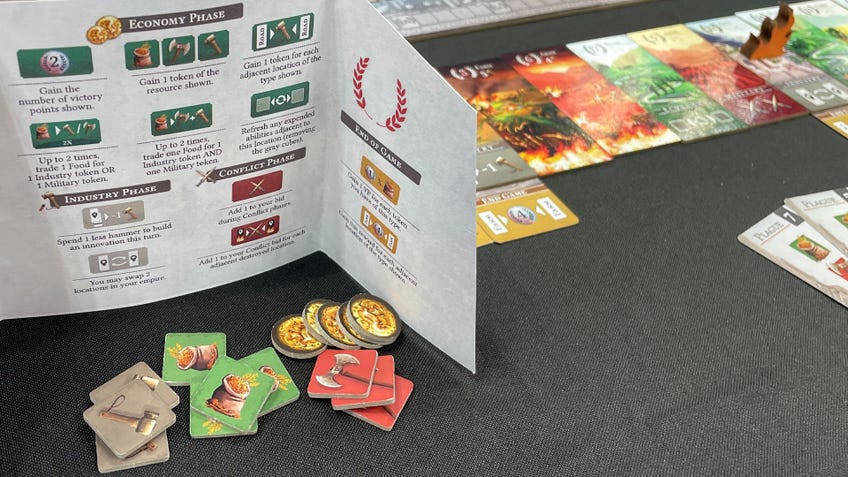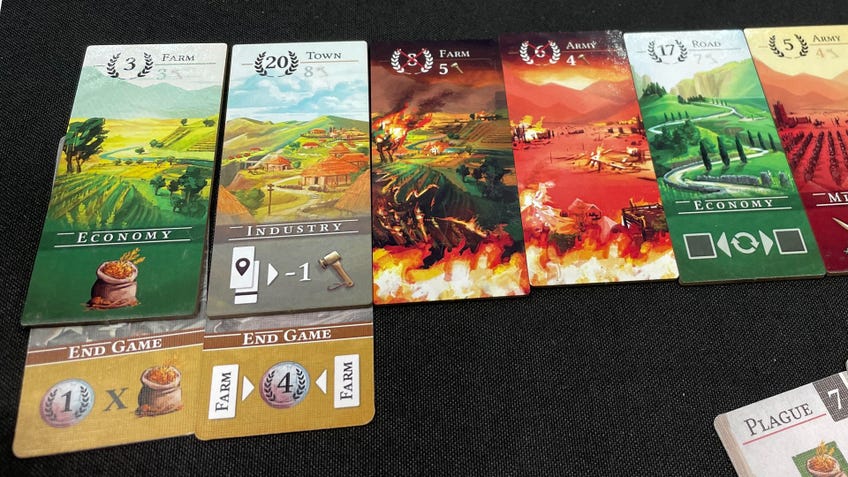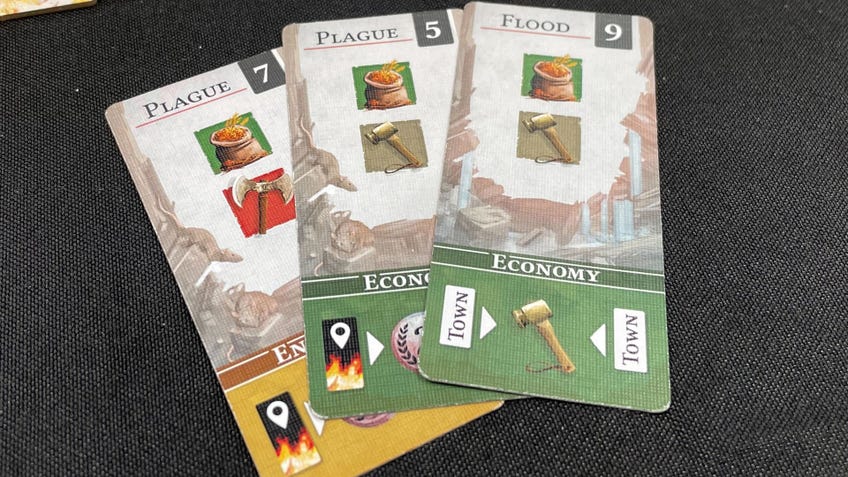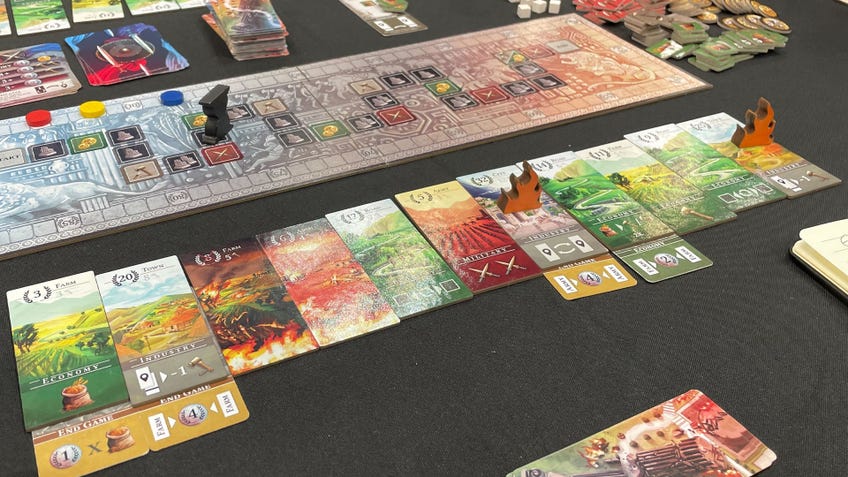Empire’s End flips civilisation-building games on their head in a destructive bidding battle
Rome might’ve been built in a day, but it can be destroyed in under an hour.
Civilisation games tend to stop at the building. You pull your empire out of the first wisps of technological and cultural gestation, progressing from the earliest days of inventing the wheel through the millennia until your civilisation becomes a gleaming vision of the future, with humanity looking to venture into the stars and settle a new home beyond Earth.
In most civ games, that’s where things finish. Assuming you avoid being torn down by a more advanced rival in pursuit of domination by military power, it’s usually a happy ending.
But real civilisations don’t work like that. History is less a straight line, more a series of messy loops scrawled in the margins of history books. Civilisations - no matter how advanced - rise, then fall, being absorbed into the annals or vanishing altogether without a trace.
Upcoming board game Empire’s End serves as an epilogue to most other civilisation games, starting players at the cultural and technological peak of their empire’s power. Rather than building up, it’s on the players to desperately try and stall their civ’s slide into decline and disappearance.
It’s on the players to desperately try and stall their civ’s slide into decline and disappearance.
Having played a handful of rounds at this year’s Gen Con ahead of its November Kickstarter campaign and planned 2023 release, Empire’s End left the impression of an approachable and engaging spin on the well-worn civilisation genre.
It’s not just civ-building that finds itself inverted in Empire’s End. Mystic Vale, Dead Reckoning and Space Base designer John D. Clair also turns the classic board game auction on its head, pitting players in a reverse-bidding war to avoid collecting cards from the centre of the table rather than claim them for themselves.

These cards represent disastrous threats that can afflict locations in each player’s civilisation, visualised by a line of tiles in front of them. Each player begins with an identical arrangement at the start of the game, but later rounds can see tiles swapped and moved, creating moments of asymmetry where one player may see their most valuable palace under threat while another weighs up the loss of a relatively expendable farm.
Once a threat is revealed, be it flood or plague, players take it in turns to place a single resource matching the icons on the card - food, industry, military, plus wild gold coins - to fend it off for another cycle around the table. If the player can’t - or won’t - add another resource to the card, they flip the targeted location (marked by an ominous wooden fire token) to its destroyed side and take the card.
Accepting a card - by choice or not - isn’t all bad. Weighing up the cost of claiming a disaster card comes with several possible complicating factors that can make the hit to your score worthwhile. Firstly, the player collects all resources placed on the card, potentially refilling their bidding power for future rounds. More importantly, each claimed card is also placed underneath a free location in the player’s tableau, leaving a bonus effect on the bottom of the card visible.

These abilities provide the true should-I-shouldn’t-I dilemma of Empire End’s bidding, granting everything from victory points to useful abilities that trigger during periodic breaks between auctions. Players can collect additional resources during an economy phase, repair locations (provided they have enough tokens to spare) and build extra cards from their hand during an industry round, and compare military strength - totalled from card symbols and tokens - with their opponents via a hidden bid to gain extra points and bonuses.
Some powers provide the chance to reposition your tiles, while others activate based on locations adjacent to the card - including destroyed tiles - layering in a lightly satisfying element of strategic arrangement on top of the central reverse-bidding battle.
Empire's End is a breezy bidding game that doesn’t lack tougher decisions and dramatic moments.
With three and four-player groups (the game also plays with just a pair), later rounds can throw up multiple disasters to contend with at the same time, with players bidding separately for each card.
After 25 fairly pacey rounds, expected to last under an hour all in all, the players see what remains of their once-great civilisation - and how many of their starting 150 points they’ve managed to cling on to through disaster and strife.

Empire’s End is another accessible addition to the library of publisher Brotherwise Games, known for retro video game-inspired hit Boss Monster and character-creation card game Call to Adventure. Clair’s light gameplay keeps things squarely focused on the risk-reward decision of when and whether to accept a card, resulting in a breezy bidding game that doesn’t lack tougher decisions and dramatic moments.
The designer’s refreshing twist on the classic tropes of civ-building and auction games are complemented by the bright artwork of Kwanchai Moriya (Dinosaur Island, Jiangshi: Blood in the Banquet Hall), whose typically evocative illustrations provide something pretty to look at as everything you (haven’t) built burns to ash.
Empire’s End will hit Kickstarter this November, with Brotherwise’s Johnny O’Neal telling Dicebreaker that the crowdfunding campaign’s stretch goals will be focused on boosting the game’s physical quality - with premium components, for example - rather than splitting out gameplay content into separate boxes. A retail release is expected next year.


